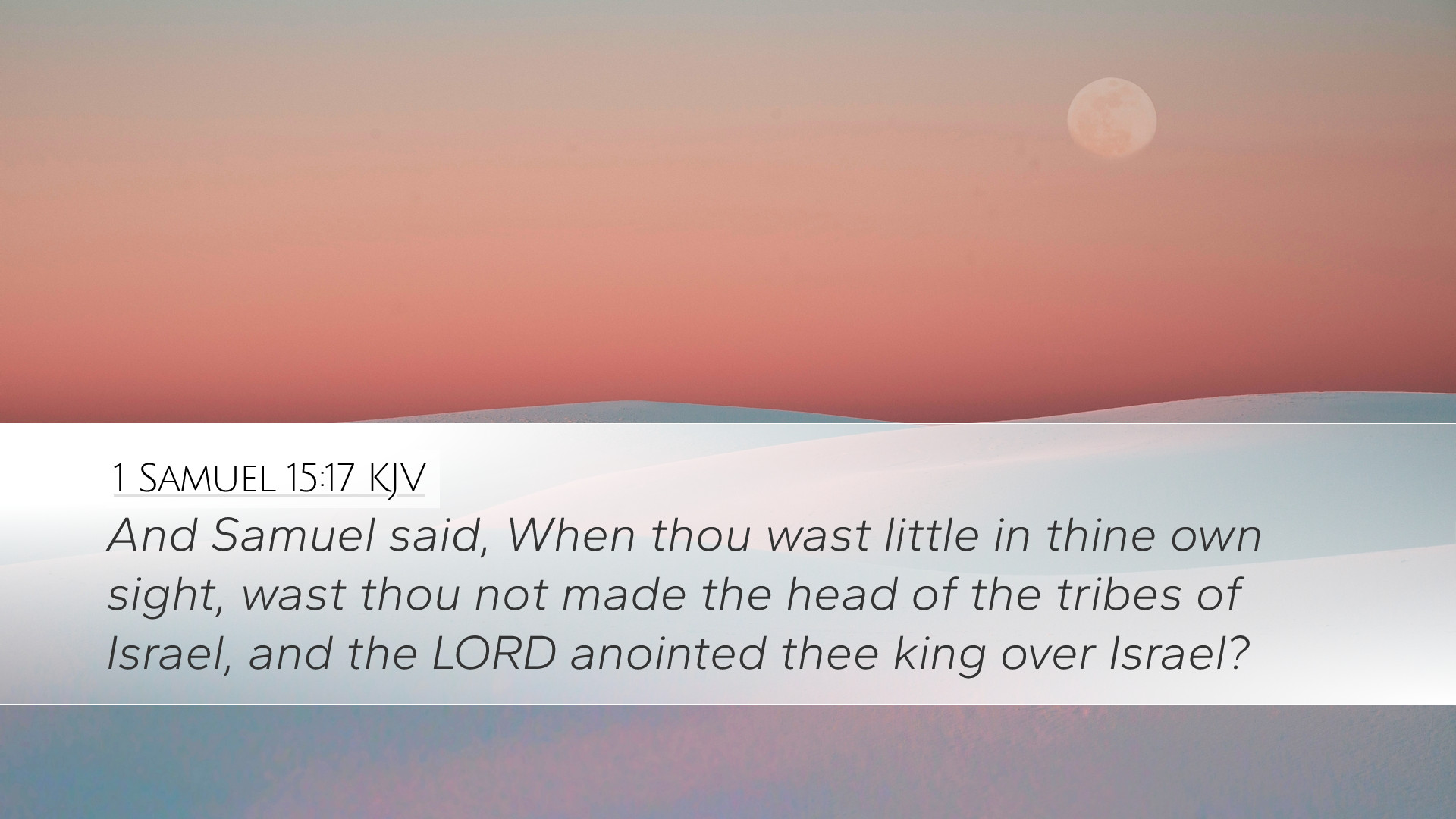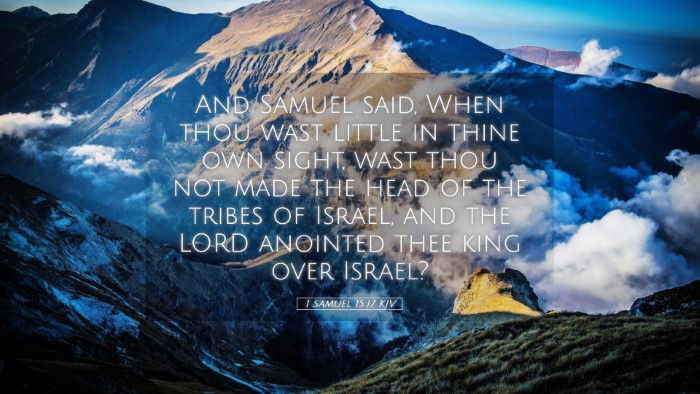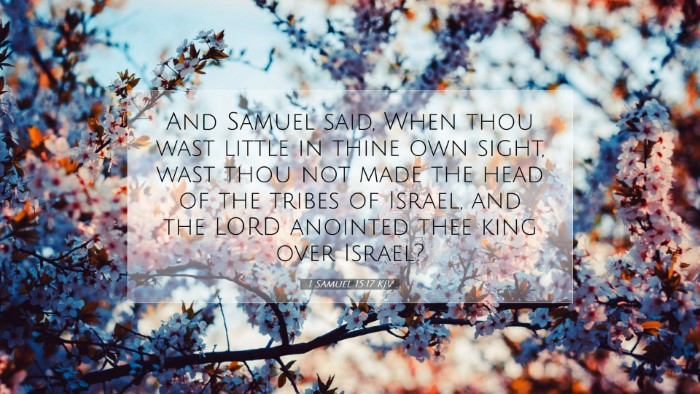Commentary on 1 Samuel 15:17
Verse: 1 Samuel 15:17
"And Samuel said, When thou wast little in thine own sight, wast thou not made the head of the tribes of Israel? and the Lord anointed thee king over Israel."
Introduction
This verse encapsulates a critical moment in the narrative of Saul's kingship. It captures the essence of humility before God and the perils of pride. Commentators such as Matthew Henry, Albert Barnes, and Adam Clarke provide profound insights into this verse that illuminate its theological and practical implications. These interpretations guide pastors, students, theologians, and scholars in understanding the significance of divine calling versus human disposition.
Insights from Matthew Henry
Matthew Henry emphasizes the humility that characterized Saul's initial calling. He notes that Saul, when he was small in his own eyes, was beloved by the Lord. This observation highlights a recurring biblical theme: God's use of the humble for great purposes.
- Humility as a prerequisite: Henry suggests that Saul’s humility was essential for his anointing. It was his lowly opinion of himself that made him fit for leadership under God's guidance.
- The danger of pride: The downfall of Saul can be traced back to his growing pride, which subsequently led to disobedience and rejection by God.
- God’s choice: The anointing was God’s choice, not influenced by human expectations or status. This underscores God's sovereignty in appointing leaders.
Insights from Albert Barnes
Albert Barnes offers a detailed examination of the socio-political implications of Saul's position. He articulates that Saul’s elevation to king was not due to his lineage or status but was a deliberate act of God that came with responsibility.
- Theological implications: Barnes emphasizes that God’s anointing comes with expectations of obedience. Saul’s subsequent rebellion against God's command shows a failure to understand this.
- Reflection on God’s choices: Barnes reminds readers that God's selections often defy human wisdom and expectations, which reaffirms the importance of seeking God’s will above societal norms.
- Consequences of pride: He stresses that as Saul became more prominent, he forgot the smallness of his initial standing and the reasons for his divine selection, leading to dire consequences for himself and the nation.
Insights from Adam Clarke
Adam Clarke provides a scholarly approach to the verse, addressing the historical and cultural contexts of Saul's kingship. He interprets the verse as a profound commentary on leadership dynamics under God's rule.
- Cultural context: Clarke explains the significance of being "little in thine own sight" in the ancient Near East, emphasizing its contrast with the prevailing norms of power and authority.
- Leadership and accountability: He articulates that true leaders must remain humble and reliant on God's guidance and acknowledges that declining humility often leads to moral failure.
- The message for Israel: Clarke suggests that the decline of leadership in Israel exemplified by Saul's pride is a cautionary tale, urging future leaders to maintain humility and acknowledge God’s sovereignty.
Thematic Reflections
This verse serves as a rich tapestry of theological themes, including:
- Divine Sovereignty: God's sovereignty is evident in His choice of Saul, reminding believers that God sees the heart and chooses according to His purpose, regardless of societal views on status.
- Human Disposition: The transition from humility to pride is a common theme in Scripture and serves as a warning to leaders today.
- Obedience: The verse stresses the importance of obedience to God's commands and the consequences of straying from them.
Conclusion
1 Samuel 15:17 is a profound verse that highlights the complexities of leadership and the importance of humility before God. Through the insights of Matthew Henry, Albert Barnes, and Adam Clarke, we are reminded of the necessity of recognizing our need for God's guidance in leadership roles. Pastors, students, theologians, and Bible scholars can draw practical and theological lessons from this verse, serving as a foundation for understanding God’s ways in choosing and guiding His leaders.


